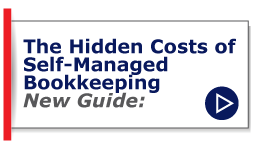![]()
Business owners and financial managers have plenty of expenses to juggle from individual employees, teams, and departments. You have several accounts set up for your business, but the expenses don't seem to add up properly and they aren't giving you the insights you need. QuickBooks and other bookkeeping software have a section for class tracking, which gives you a way to add custom categories to each expense. This feature may not seem like a big deal at first, but it's quickly apparent how useful it is to keeping on top of your business's expenses.
1. Category flexibility.
You aren't limited to a single account for a particular set of expenses. If you want to get a company wide view of a specific set of expenses, such as per diem meals, office supplies, or inventory, assigning a class to these purchases in addition to an account provides you with valuable information. If it seems like spending is out of control and your expense accounts are running dry, it may be easier to figure out everyone in the office is taking clients out to fancy steakhouses instead of company-approved restaurants through classes than going account by account to figure out where the issue is.
2. Keeping up on one-time expenses.
Some expenses don't occur on a frequent enough basis to be tracked through a formal account, or they aren't assigned to a particular account. Instead of letting these expenses go untracked, which is an easy way to end up with major financial discrepancies, use class tracking to look over anything falling under the ad hoc payment category. You may need specialty supplies for a one off client or disaster recovery after a devastating cyber attack. These situations occur infrequently enough that class tracking makes much more sense than other options.
3. Customized to your business type.
Not all expenses and payments fall under standard bookkeeping categories, especially if your company deals in unconventional services or has special needs for accounting. Class tracking isn't defined with a set of rigid categories that locks you into options such as accounts payable, accounts receivable, and similar options. You define each class to best suit your business and the specific expenses you're trying to describe. The more specific you get with your classes, the better an idea you have of where your business is spending money.














